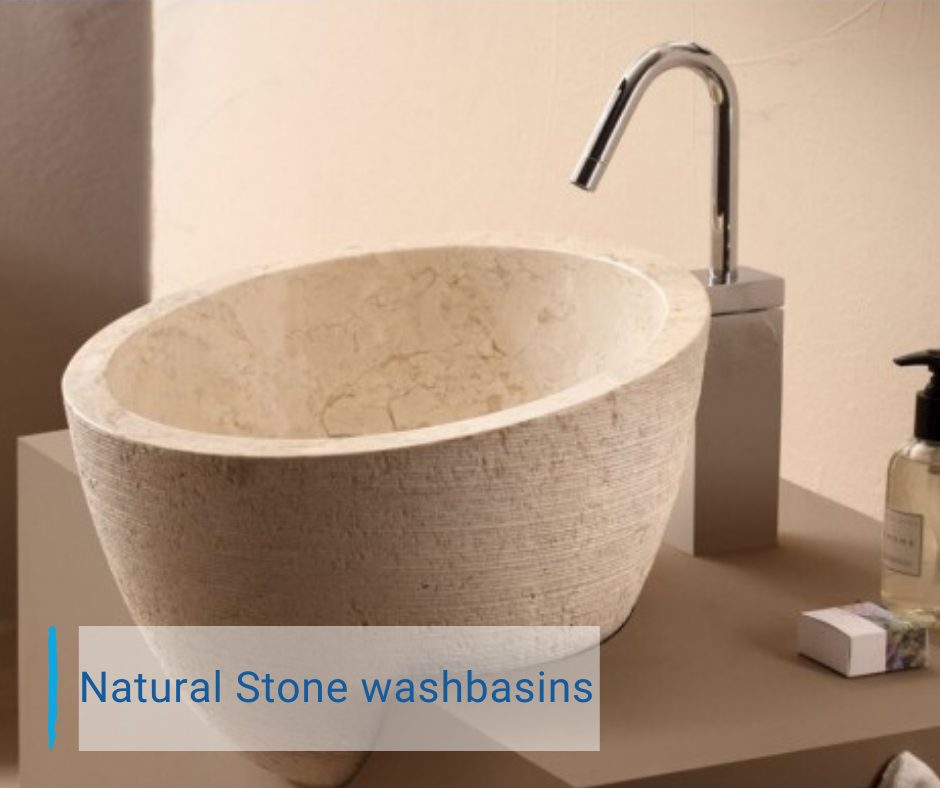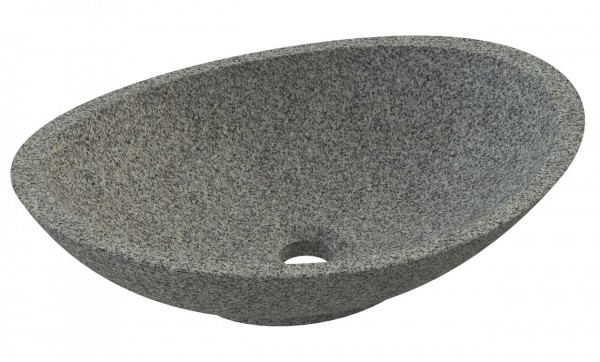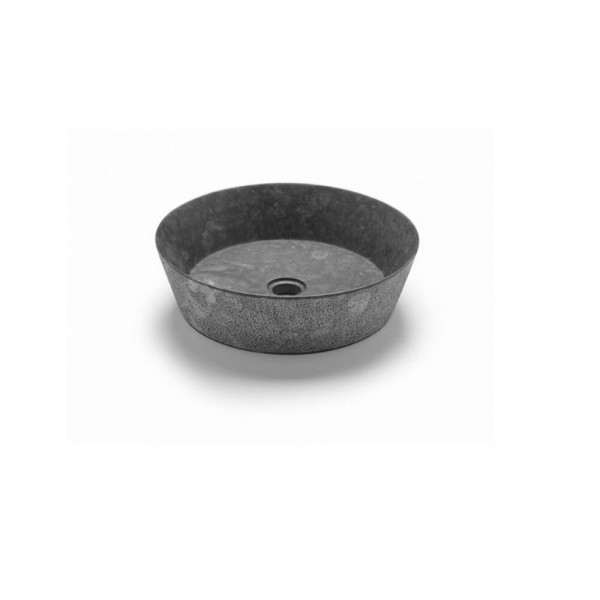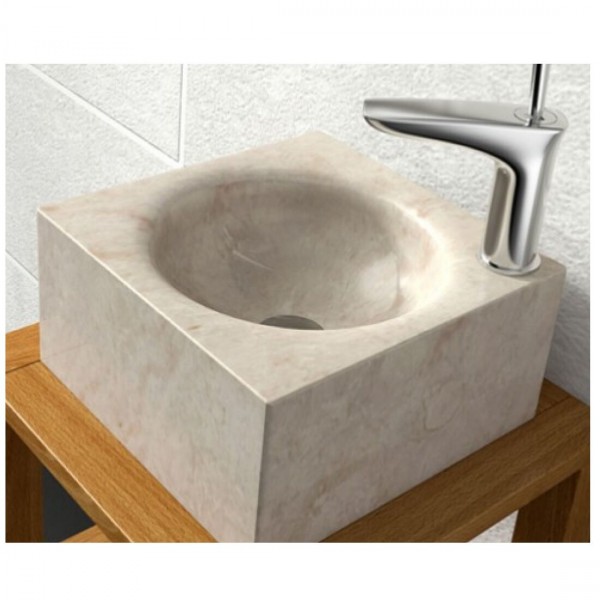The natural stone washbasins are made of natural stone. Natural stone is made of hard stone. This gives the washbasin a luxurious and natural look, making a natural stone washbasin fit very well in a classic bathroom. The biggest advantages of a natural stone washbasin are that the washbasins are unique in structure and color. Because natural stone is a natural product there will always be differences between washbasins, you will not find twice a 100% identical washbasin. This gives you a unique washbasin that other people do not have!
Good to know is that natural stone is very sensitive to chemical products, it is also porous and not scratch resistant. It is therefore not wise to clean your sink with chemicals, a wet cloth is sufficient. The advice is to pre-treat and maintain natural stone products with a special impregnating agent, so you can enjoy it longer.
Despite the fact that the popularity for natural stone sinks has risen considerably in recent years, there are, of course, disadvantages associated with them. The biggest disadvantage is that natural stone requires relatively high maintenance. Natural stone is vulnerable to stains such as lime from water and dirt. Fortunately, you can prevent this by impregnating your washbasin with a special impregnating agent. This will enable you to enjoy your washbasin for a long time.
Do’s en Don’ts
Do not use acid
Many types of natural stones are sensitive to acid. This is because they often contain lime; lime reacts with acid. You then get dull spots in the natural stone surface. It is therefore better to avoid certain acidic products, such as the following;
- anti-scald agents
- vinegar
- hydrochloric acid
- lemon juice or acid
- orange juice
- wine
- carbonated soft drink
So watch out for a glass of wine in the bathroom too! If, for example, you are enjoying your bath and then empty your glass into the sink, it’s better to do it in the kitchen *wherever you don’t have a natural stone sink. It is better to empty the glass in the kitchen *wherever you do not have a natural stone sink.
Do not use scouring pads
Although natural stone is immensely durable and rock hard, it doesn’t hold up well to abrasive treatments. This means that you should not use scouring pads to clean your sink. Preferably use only soft, clean cloths to clean natural stone sinks. If there is a layer of limescale that will not go away without some force, use the soft back of a scouring pad and rub gently over the layer. Do not use any lime removers at all!
Do not use corrosive agents
In addition to acidic cleaners, you should also keep caustic, aggressive agents like chlorine, ammonia, sink plunger and oven cleaner away from your beautiful natural stone sink.
Do not use hot water
Also, don’t clean the natural stone elements in your bathroom with hot water. This can damage the protective layer, which is necessary to ensure that no stains can penetrate the stones!
So what can you clean natural stone with?
There are a lot of cleaning products on the market that are specifically designed for natural stone. You can make use of these when the natural stone in your bathroom has become dirtier than intended and you need some extra cleaning power. But what’s easier is to keep your natural stone up to date. This is actually quite simple. For that, you only need to do two things:
- twice a week just clean with warm soapy water with green soap;
- daily rinse with clean water and dry well.
When you read about the things you are not allowed to do with natural stone, it may seem impossible to keep such a beautiful natural stone sink in good condition. But actually it is not that bad. We are all used to using aggressive cleaning products in the bathroom and that is not good.
The trick is to clean regularly with lukewarm soapy water. In this way you ensure that lime, but also soap scum and toothpaste, have no chance of settling on the natural stone. We have also come to the end of this article. If you have any questions, please leave a comment, we will be happy to answer them!




